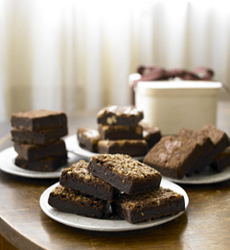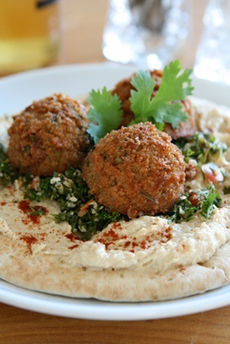|
*Overrun refers to the volume of air whipped into the ice cream mix. Superpremium ice creams have lower overruns than less expensive brands. In general, the more overrun, the lower the cost of the ice cream. That’s because the product contains more air and less of the ingredients, which are costlier. By law, overrun does not have to be declared on the label, and we’ve never seen it stated.
Tip #2: How To Avoid Surface Ice Crystals & Freezer Burn
Ice Crystals. When you remove ice cream from the freezer for a period of time, moisture droplets will form on the surface. When you return the ice cream to the freezer, the moisture turns to ice. (This can also happen when the temperature of the freezer fluctuates, which can occur when the door is kept open for too long).
To avoid ice crystals, keep the carton out of the freezer for as short a time as possible. Before returning it to the freezer, cover the surface with plastic wrap and tamp down the wrap so that air can’t turn the moisture into ice. Keep the surface of the ice cream as even as possible for optimal surface contact.
Freezer Burn. Greyish-white freezer burn is a result of dehydration that occurs on the surface of frozen foods that are improperly wrapped. The food is safe to eat, but the quality has degraded. To prevent freezer burn, the package must be free of air and sealed airtight. For most foods, including meat and fish, use an airtight wrapping of plastic wrap and a second layer of protection with a freezer-strength food storage bag with all of the air squeezed out.
Ice cream cartons are more of a challenge. You can wrap the carton itself in plastic wrap (make sure to reuse the wrap). You can also invest in plastic containers that hold the pint or quart, adding an extra layer of protection.
What’s the difference between superpremium and other types of ice cream? Check out our Ice Cream Glossary.
|




